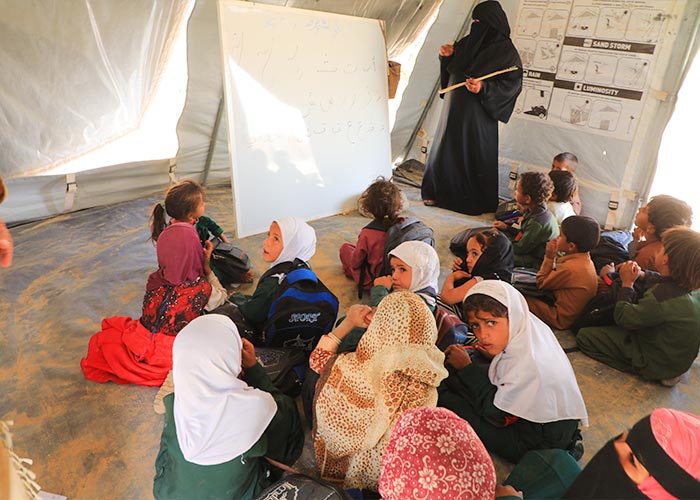
The war in Yemen has had the greatest impact on primary and secondary education. Since 2014, the fighting has engulfed nearly all Yemeni governorates, and education has been exposed to extensive damage, affecting people, curricula, and infrastructure. As a result, more than four million children have been denied their right to basic education, and the figure is expected to climb to more than six million.
The content of the educational curricula has been modified and replaced—especially in areas controlled by the Ansar Allah Houthi group—with rhetoric that promotes sectarian convictions and sways students’ behaviors towards violence, a desire for death, extremism, and racism.
Teachers in predominantly populated areas also face abuse, prosecution, arrests, enforced disappearance, and non-payment of their salaries. Some of them are forced to work alternative jobs and trades to make a living, including joining the fighting fronts. More than 3,000 schools have been completely or partially destroyed as a result of aerial bombardment, mines, traps, and unexploded weapons, and some of them have been converted into military barracks and weapons stores.
The continuation of the armed conflict in Yemen, the rise in poverty rates to more than 80% —according to United Nations estimates—continued displacement, and the collapse of the national currency, all pose fundamental challenges to addressing the disaster that befell education.
Despite all of this, efforts must be redoubled to restore and rehabilitate all components of the educational process, whether human or material. The continuation of this ruin heralds a serious disaster that may fundamentally threaten peace and security in the entire region for decades to come and may complicate the mission of the United Nations and the international and regional community to stabilize the situation and establish peace after the war.

